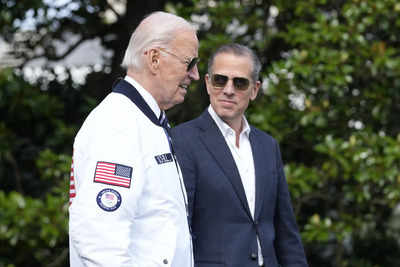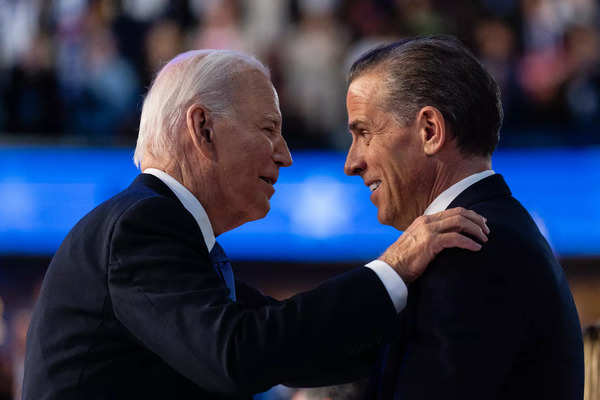
President Joe Biden’s decision to pardon his son, Hunter Biden, has sparked intense debate and criticism. The controversy stems from Biden’s previous public assurances that he would not grant such a pardon, its departure from established clemency norms, and the ethical questions surrounding a president pardoning his own child. While presidential pardons are a legal prerogative, the timing and nature of this decision have raised concerns about fairness, accountability, and public trust.
1. Contradicting Biden’s Own Promises
Throughout his presidency, Joe Biden repeatedly assured Americans that he would not pardon his son. Following Hunter Biden’s indictment on federal gun and tax charges in June, Biden explicitly stated, “I will not pardon him.” Even in November, White House Press Secretary Karine Jean-Pierre reiterated the administration’s stance, firmly stating, “The answer is no.”
A video of Jean-Pierre making this assertion has resurfaced and gone viral, drawing widespread criticism. Netizens have accused the administration of dishonesty, with one commenter saying, “They just lie, lie, lie, and then do exactly what they said they wouldn’t.” Others questioned the President’s integrity, highlighting the sharp contrast between his earlier remarks and the December 1 pardon.
2. Departure from Justice Department Guidelines
The decision to pardon Hunter also diverges from the Justice Department’s established clemency practices. The Office of the Pardon Attorney typically recommends pardons for individuals who have already served their sentences and demonstrated rehabilitation. Hunter, who has not been sentenced or served time, does not fit these criteria.
Margaret Love, who oversaw the clemency process at the Justice Department from 1990 to 1997, described such an intervention as “almost unprecedented.” While Donald Trump frequently bypassed clemency norms during his presidency, Biden’s decision has drawn attention for its timing and personal implications. Critics argue that it undermines the justice system by prioritising a family member over thousands of pending clemency petitions. Advocacy groups have also criticised the pardon. Zoë Towns, executive director of FWD.us, called the decision a missed opportunity to address systemic injustices, particularly for those serving disproportionately long sentences. She urged Biden to focus on broader reforms rather than extending clemency to his son.

FILE — President Joe Biden embraces his son Hunter Biden after his speech on the first night of the Democratic National Convention in Chicago, Aug. 19, 2024. President Biden issued a full and unconditional pardon of his son Hunter on Sunday, Dec. 1, using the power of his office to wave aside years of legal troubles, including a federal conviction for illegally buying a gun. (Eric Lee/The New York Times)
3. Ethical Implications of Pardoning a Family Member
While the U.S. Constitution grants presidents broad clemency powers, using this authority to pardon a close family member has sparked allegations of nepotism. Critics argue that Hunter’s pardon sets a troubling precedent, suggesting that personal connections can influence presidential decisions.
The pardon also clashes with Biden’s broader promises to restore integrity to the White House and uphold the rule of law. Some defenders have pointed out that Biden acted as a father protecting his son, but others contend that the decision undermines public trust in his administration. “Gaslighting the American people along the way is the issue,” one commentator noted, highlighting the perceived hypocrisy in Biden’s actions.
4. Political Fallout and Renewed Scrutiny
The pardon has created a political firestorm, with Donald Trump and his supporters seizing the opportunity to criticise Biden. Trump, who frequently granted clemency during his presidency, has accused Biden of hypocrisy and double standards. The situation is likely to be weaponised in future partisan debates.
The controversy has also drawn attention to Biden’s clemency record. During his term, the Office of the Pardon Attorney received nearly 12,000 petitions, yet Biden has granted only 157 clemency actions, including 25 pardons and 132 commutations. This contrasts with Trump’s first-term total of 238 clemency actions, raising questions about Biden’s priorities.






